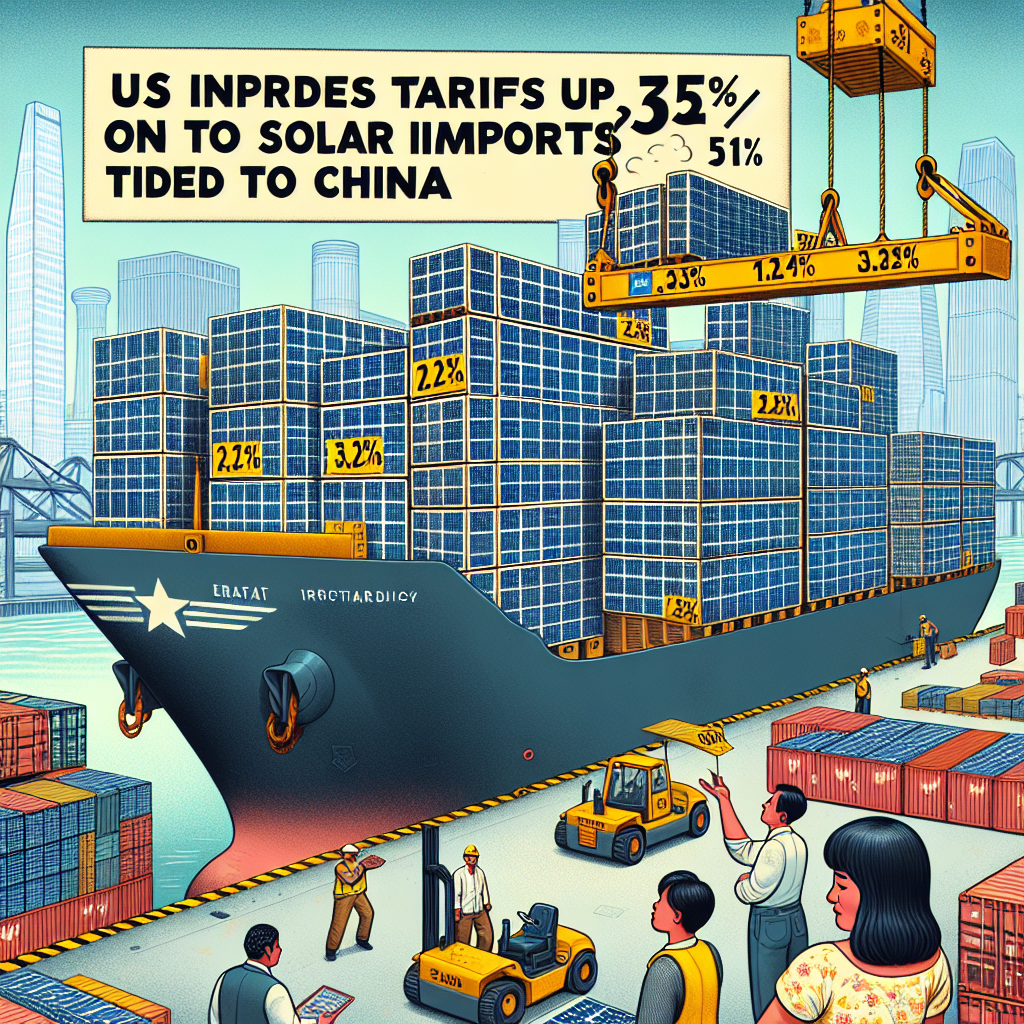US Imposes Tariffs Up to 3,521% on Solar Imports Tied to China
US Imposes Tariffs Up to 3,521% on Solar Imports Tied to China
Introduction
The United States has announced a significant increase in tariffs on solar imports linked to China, with rates soaring up to 3,521%. This move is part of a broader strategy to counteract what the US perceives as unfair trade practices by China in the solar industry.
Key Reasons for the Tariffs
- Unfair Trade Practices: The US accuses China of subsidizing its solar industry, leading to unfair competition.
- Market Disruption: The influx of cheaper Chinese solar products is believed to be harming the US solar manufacturing sector.
- National Security Concerns: There are worries about over-reliance on Chinese solar technology, which could pose risks to national security.
Impact on the Solar Industry
The tariffs are expected to have significant repercussions on both the US and global solar markets:
- Increased Costs: US companies may face higher costs for solar components, potentially leading to increased prices for consumers.
- Supply Chain Adjustments: Companies might seek alternative suppliers outside of China to mitigate tariff impacts.
- Innovation and Investment: The tariffs could spur domestic innovation and investment in the US solar industry.
Global Reactions
The international community has expressed mixed reactions to the US tariffs:
- China’s Response: China has criticized the tariffs, calling them protectionist and harmful to global trade relations.
- European Union’s Stance: The EU is monitoring the situation closely, as it could affect global solar supply chains.
- Environmental Concerns: Environmental groups worry that increased costs could slow the adoption of solar energy.
Conclusion
The US’s decision to impose steep tariffs on solar imports tied to China marks a significant escalation in trade tensions. While aimed at protecting domestic industries and addressing national security concerns, the move could lead to higher costs and supply chain disruptions. The global solar market is now at a crossroads, with potential shifts in trade dynamics and innovation pathways.














